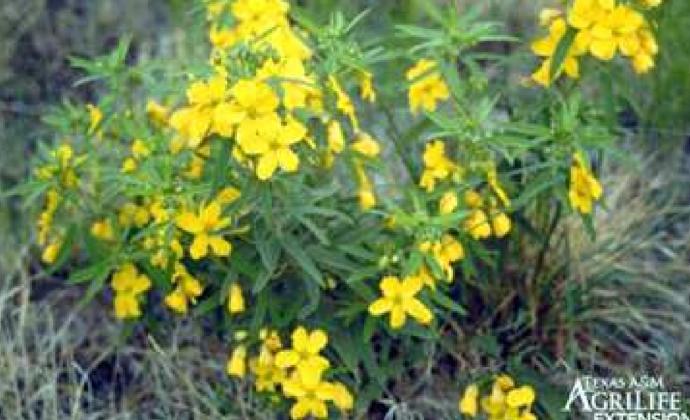The Texas A&M AgriLife Extension Service will present a webinar, “Toxic Plants in Grasslands and the Impact on Livestock,” at noon on April 1.
The cost is $35; Texas A&M AgriLife employees may attend free. Advance registration is required for all participants. One general Texas Department of Agriculture continuing education unit approval is pending.
To immediately receive instructions to access the webinar, pay via credit card when registering. Instructions to access the event will be emailed once payment is complete.
Cat Barr, Ph.D., Texas A&M Veterinary Medical Diagnostic Laboratory diagnostic toxicologist, Bryan-College Station, is the featured speaker.
Integrated toxic plant management
AgriLife Extension programs for Integrated Toxic Plant Management have been developed to teach ranchers to identify potentially toxic plants in their pastures, understand symptoms of plant poisoning in livestock, recognize biomes where certain plants are likely to emerge, and provide strategies for controlling those plants and their ingestion.
“The successful cattleman controls weeds not only to preserve healthy pasture, but also to prevent plant poisonings that may reduce individual animal performance or even cause fatalities,” said series co-coordinator Morgan Treadwell, Ph.D., AgriLife Extension range specialist, San Angelo. “Grasslands are critical infrastructure for most cow/calf operations. The quality and abundance of pasture grasses directly influence livestock rate of gain, thereby affecting livestock margins and production costs, which determine the profitability of a stocker operation.”
Problematic plants
Barr said toxic plants across the U.S. can cause a range of effects in cattle and other grazing species.
“Nightshades can cause gastrointestinal irritation, diarrhea and neurological problems such as incoordination and depression when overconsumed,” she said.
Starthistles cause a very specific brain damage in horses, preventing them from chewing and swallowing properly, Barr said. Coffee senna and its cousin twinleaf senna, cause profound skeletal muscle destruction in cattle — alert downers — and heart muscle damage in goats and chickens.
Some plants including tobaccos and larkspurs can cause birth defects in calves and lambs. Plants like groundsels that contain pyrrolizidine alkaloids cause progressive liver damage that can take six weeks to over a year to kill animals that consume them.
“Every year we lose an unknown number of animals across the country to largely preventable plant intoxications, making this webinar of vital importance to Texas livestock producers,” Treadwell said. “We are excited to have Dr. Barr as our speaker and look forward to her expertise and advice about this important topic.”
Susan Himes is a writer and media relations specialist for Texas A&M AgriLife. She writes news releases and features from science-based information generated by the agency. She also covers human interest stories and events across the state.

